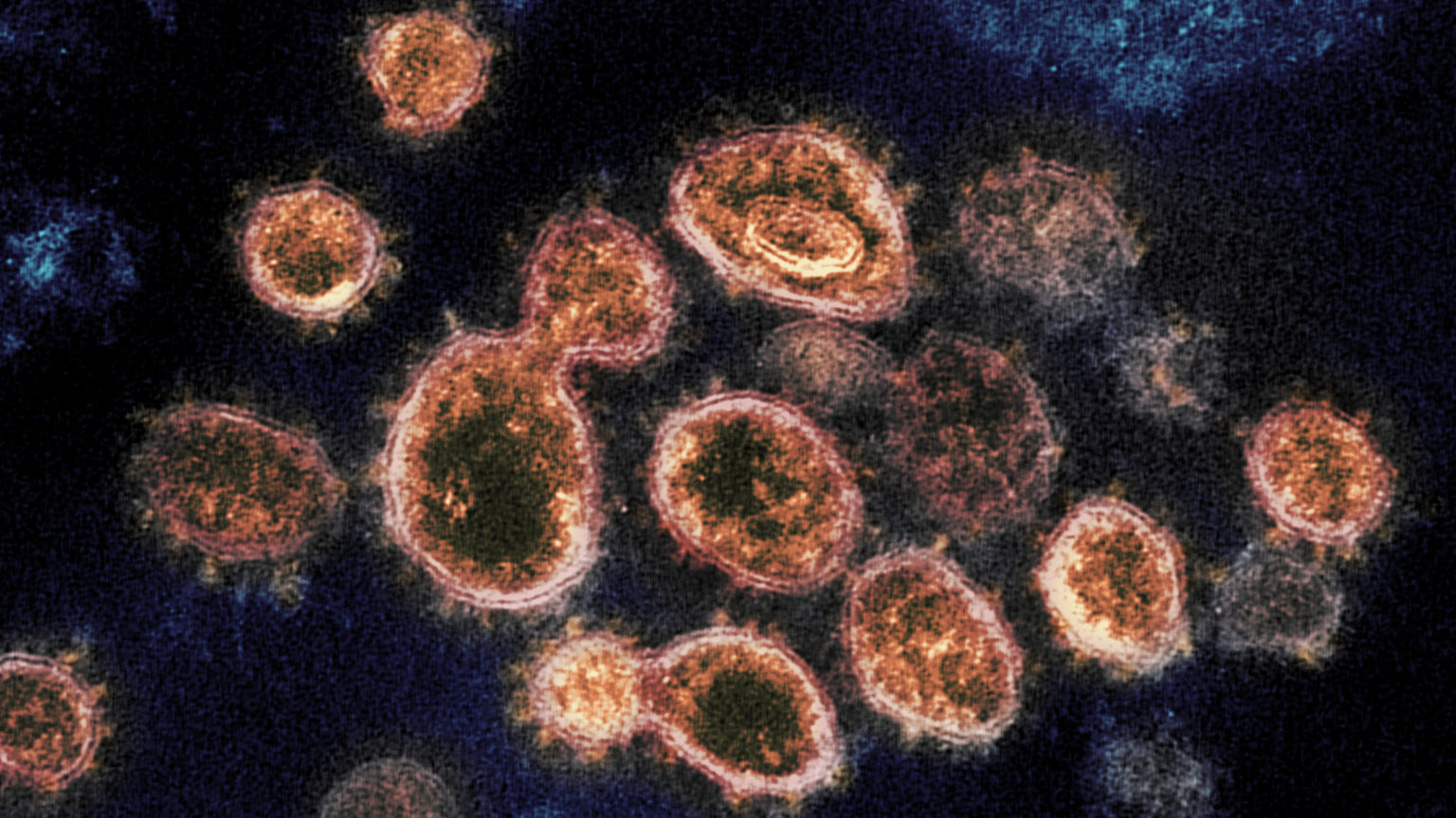'The News Is Mostly Bad' Says Epidemiologist
State epidemiologist Dr. Ryan Westergaard said COVID-19 rates are potentially getting worse in the state.
July 16, 2020

This transmission electron microscope image shows SARS-CoV-2, the virus that causes COVID-19, isolated from a patient in the U.S. Virus particles are shown emerging from the surface of cells cultured in the lab. The spikes on the outer edge of the virus particles give coronaviruses their name, crown-like. (Courtesy: NIAID-RML)
Public health officials continue to encourage Wisconsinites to limit themselves to only essential travel as the state continues to see a rise in cases.
“We want you to remember that COVID-19 is very much circulating in Wisconsin,” said Stephanie Smiley, interim head of the public health department in the state’s Department of Health Services.
This comes as cases rose by 900 Thursday, the same week the state saw multiple record-breaking days of new cases. Smiley said Wisconsin is experiencing “significant community spread.”
“When you’re looking at the epidemic indicators, the data around cases, the news is mostly bad…and potentially getting worse,” said state epidemiologist Dr. Ryan Westergaard.
He cited cases among Wisconsinites in their 20s as a potentially concerning way the virus could spread due to the high rate of asymptomatic infection among that population. He said that might indicate a need to test a broader swath of that demographic.
Smiley said a significant portion of infections from that group came from gatherings outside their house. She added however, that recent protests have not greatly contributed to the state’s increase in cases.
“We know that meeting up with friends for drinks or going to a birthday party, these types of activities definitely do spread COVID-19,” she said.
Schools
The question over whether and how schools will reopen remains central for public officials. Gov. Tony Evers tweeted Thursday that he was “as worried as you are about school this fall,” due to the increase in cases.
After Milwaukee Public Schools floated the notion of starting classes virtually in the fall, the Madison teachers union came out Thursday in support of a similar proposal in the state’s second-largest school district.
Westergaard said that local public health officials will largely take the lead in working with districts and responding to the pandemic in schools. He added that broad-scale testing might not be practicable for schools outside of normal tracking of the virus.
“The big challenge and the big need for the public health response is to really evaluate people who have been at risk,” he said. “And then the role of testing is for people who are symptomatic, of course, and then people who have been in close contact.”
Multisystem Inflammatory Syndrome in Children
Westergaard said Wisconsin has confirmed six cases of multisystem inflammatory syndrome in children, a condition that causes organ inflammation possibly from an abnormal immune response to COVID-19.
He said four of the cases have returned home, while two remain hospitalized.
“Wisconsin Department Health Services continues to monitor the situation as we look out for this uncommon yet serious condition…as one of the ways that COVID-19 continues to affect communities,” he said.
 Passport
Passport











Follow Us